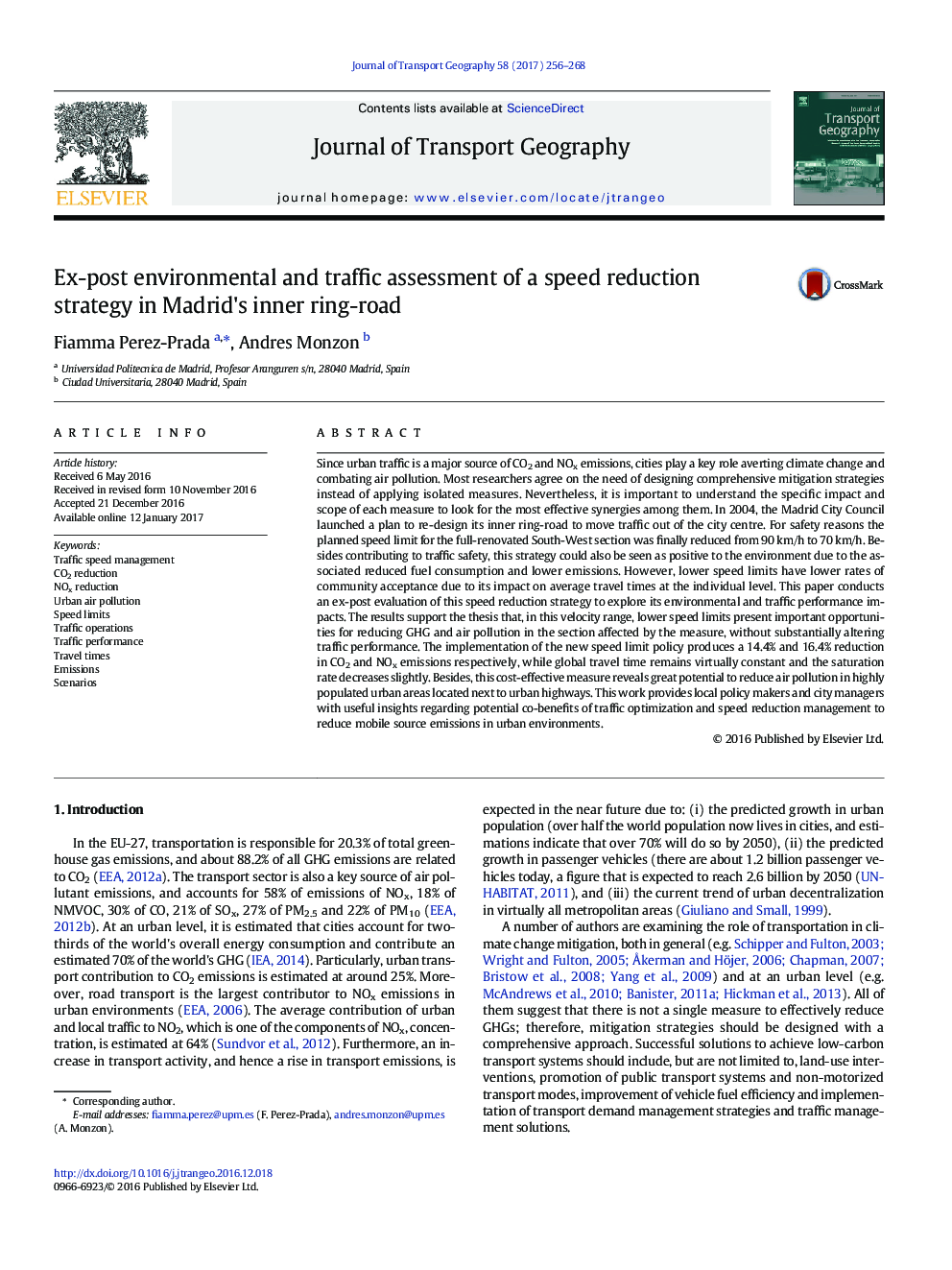| Article ID | Journal | Published Year | Pages | File Type |
|---|---|---|---|---|
| 5117623 | Journal of Transport Geography | 2017 | 13 Pages |
Abstract
Since urban traffic is a major source of CO2 and NOx emissions, cities play a key role averting climate change and combating air pollution. Most researchers agree on the need of designing comprehensive mitigation strategies instead of applying isolated measures. Nevertheless, it is important to understand the specific impact and scope of each measure to look for the most effective synergies among them. In 2004, the Madrid City Council launched a plan to re-design its inner ring-road to move traffic out of the city centre. For safety reasons the planned speed limit for the full-renovated South-West section was finally reduced from 90Â km/h to 70Â km/h. Besides contributing to traffic safety, this strategy could also be seen as positive to the environment due to the associated reduced fuel consumption and lower emissions. However, lower speed limits have lower rates of community acceptance due to its impact on average travel times at the individual level. This paper conducts an ex-post evaluation of this speed reduction strategy to explore its environmental and traffic performance impacts. The results support the thesis that, in this velocity range, lower speed limits present important opportunities for reducing GHG and air pollution in the section affected by the measure, without substantially altering traffic performance. The implementation of the new speed limit policy produces a 14.4% and 16.4% reduction in CO2 and NOx emissions respectively, while global travel time remains virtually constant and the saturation rate decreases slightly. Besides, this cost-effective measure reveals great potential to reduce air pollution in highly populated urban areas located next to urban highways. This work provides local policy makers and city managers with useful insights regarding potential co-benefits of traffic optimization and speed reduction management to reduce mobile source emissions in urban environments.
Keywords
Related Topics
Life Sciences
Environmental Science
Environmental Science (General)
Authors
Fiamma Perez-Prada, Andres Monzon,
